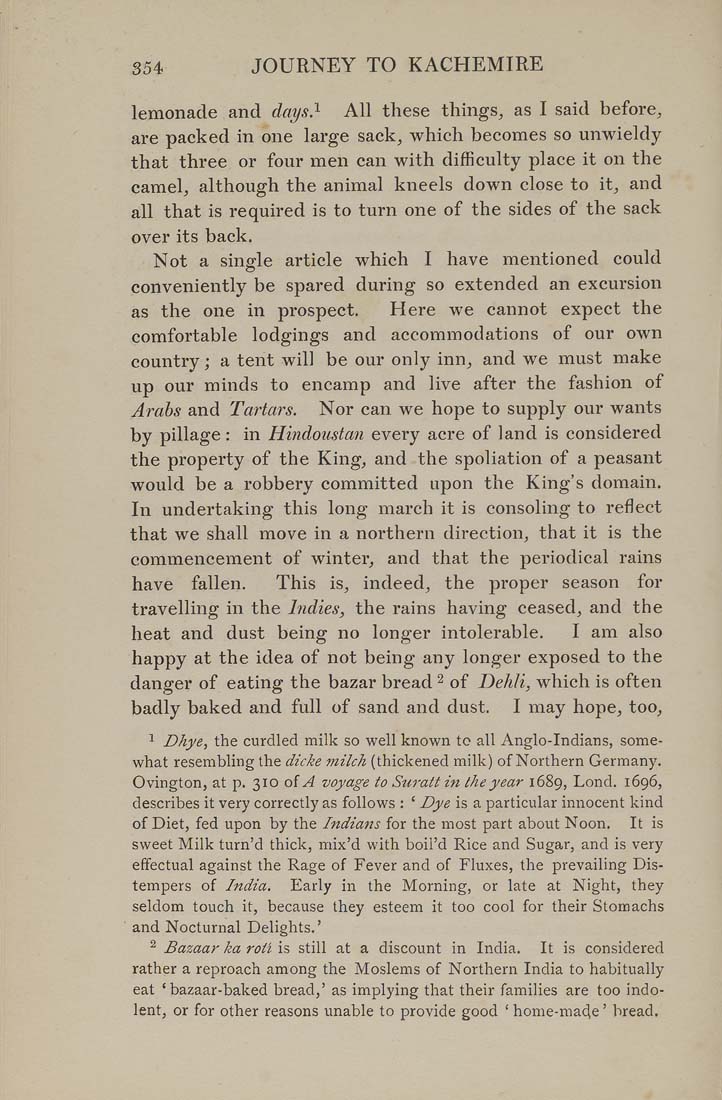354 JOURNEY TO KACHEMIRE
lemonade and days.'^ All these things, as I said before,
are packed in one large sack, which becomes so unwieldy
that three or four men can with difficulty place it on the
camel, although the animal kneels down close to it, and
all that is required is to turn one of the sides of the sack
over its back.
Not a single article which I have mentioned could
conveniently be spared during so extended an excursion
as the one in prospect. Flere we cannot expect the
comfortable lodgings and accommodations of our own
country; a tent will be our only inn, and we must make
up our minds to encamp and live after the fashion of
Arabs and Tartars. Nor can we hope to supply our wants
by pillage: in Hindoustan every acre of land is considered
the property of the King, and the spoliation of a peasant
would be a robbery committed upon the King's domain.
In undertaking this long march it is consoling to reflect
that we shall move in a northern direction, that it is the
commencement of winter, and that the periodical rains
have fallen. This is, indeed, the proper season for
travelling in the Indies, the rains having ceased, and the
heat and dust being no longer intolerable. I am also
happy at the idea of not being any longer exposed to the
danger of eating the bazar bread ^ of Dehli, which is often
badly baked and full of sand and dust. I may hope, too,
! Dhye, the curdled milk so well known to all Anglo-Indians, some¬
what resembling the dicke milch (thickened milk) of Northern Germany.
Ovington, at p. 310 of ^ voyage to Suratt in the year 1689, Lond. 1696,
describes it very correctly as follows : ' Dye is a particular innocent kind
of Diet, fed upon by the Indians for the most part about Noon. It is
sweet Milk turn'd thick, mix'd with boil'd Rice and Sugar, and is very
effectual against the Rage of Fever and of Fluxes, the prevailing Dis¬
tempers of India. Early in the Morning, or late at Night, they
seldom touch it, because they esteem it too cool for their Stomachs
and Nocturnal Delights.'
^ Bazaar ka roti is still at a discount in India. It is considered
rather a reproach among the Moslems of Northern India to habitually
eat 'bazaar-baked bread,' as implying that their families are too indo¬
lent, or for other reasons unable to provide good ' home-made' bread.
|








